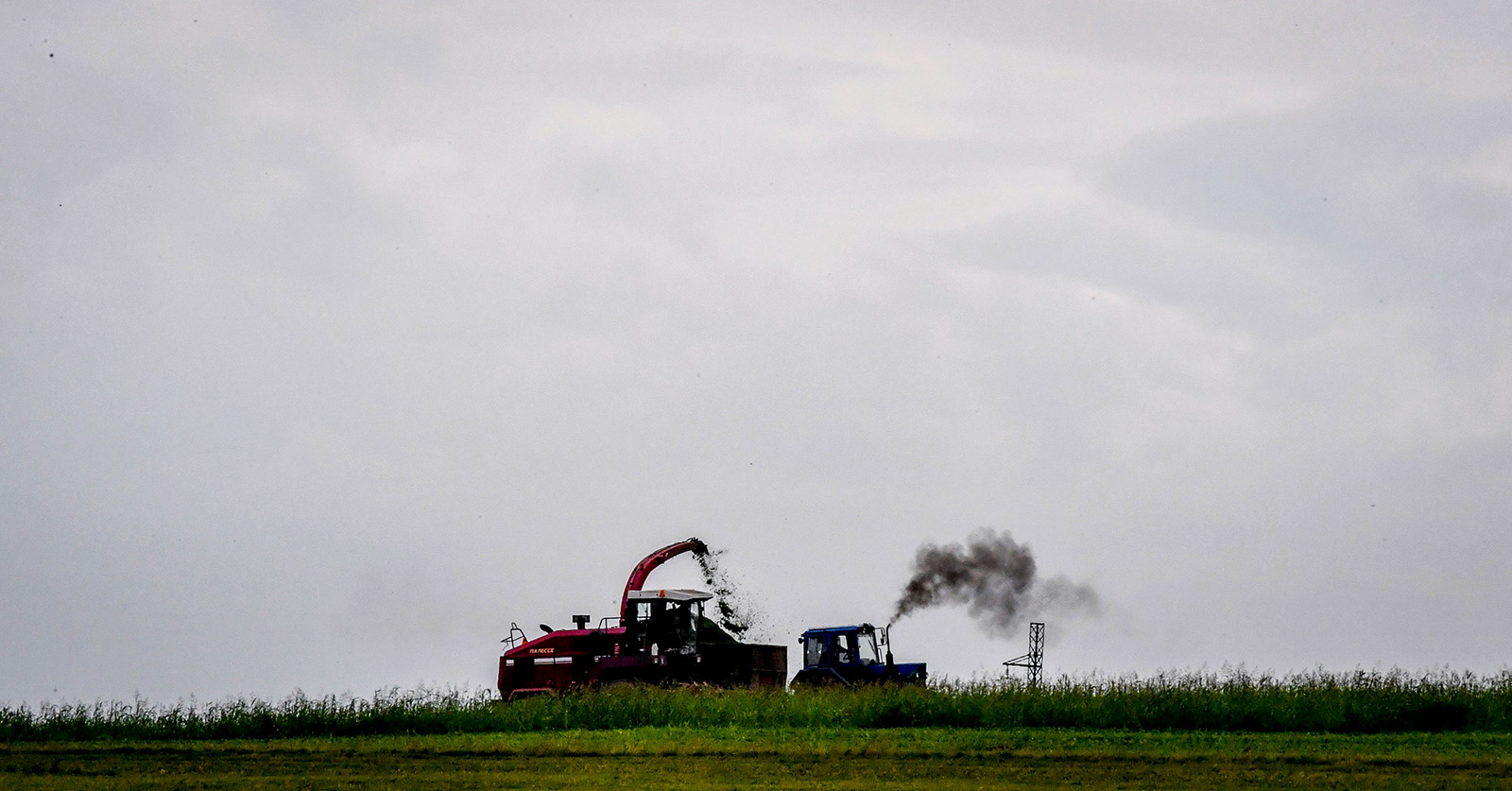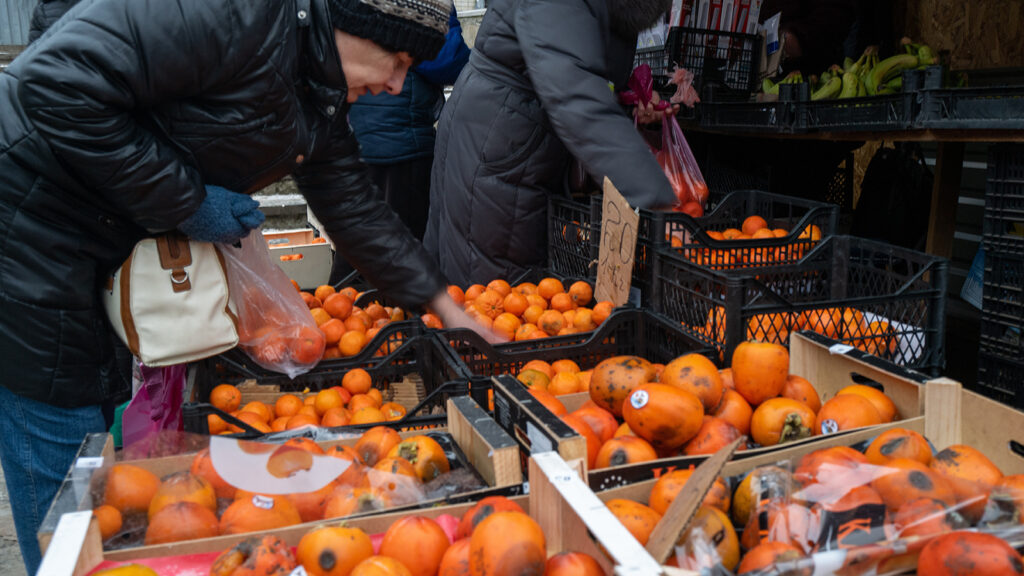How Russia Stands to Benefit from Climate Change

A combine harvester and a tractor work on a field outside Moscow. Russia doesn't have a strong climate denial industry inside the country, and climate change is pretty well embedded into their agricultural ambitions.
Photo: Yuri Kadobnov/AFP via Getty Images
The changing climate is starting to impact geopolitical risks. As the world moves away from a carbon economy, oil and gas are likely to diminish in importance, while the issue of food security is becoming more important.
This will have an impact on countries’ relative power to one another — and one of those countries that may stand to gain from climate change is Russia. As the earth warms, huge areas of Siberia are starting to open up to farming and grain production.
BRINK spoke to Rod Schoonover, the former director of environment and natural resources at the National Intelligence Council under U.S. Presidents Obama and Trump.
SCHOONOVER: As temperatures go up both globally and regionally, what you’re seeing is a northerly shift in crop production zones in the Northern Hemisphere. Regions in Canada, the United States and especially in Russia that were once deemed non-productive for agriculture are becoming productive.
Siberia Is Opening to Agriculture
There are some open questions still about CO2 fertilization and its effects on crop yields, but there’s no question that we are seeing a shift towards the Poles in the plant world. So for example, in Russia, you can expect whole swaths of Siberia and other parts of the Tundra to become more favorable.
I don’t want to put it all down to climate because there are also technological improvements in terms of agricultural yields, but Russians are quite aware of climate change effects. They don’t have a strong climate denial industry inside the country, and climate change is pretty well embedded into their agricultural ambitions.
BRINK: How will climate change impact food security, or insecurity, more generally?
SCHOONOVER: There are a number of global trends affecting food security. One of those has to do with the world population, which is expected to hit about 10 billion people around 2050.
One of the great things that we’ve done over the last 50 years is to move people out of extreme poverty, but this will ultimately change their diets. Therefore, you have more people moving away from grains towards meat and more water and land-intensive fruits and vegetables. Even without climate change, this would be putting stress on the global food system.
Russia understands that they need to build an economy for the 21st century by taking less advantage of climate change that’s happening now and building towards taking advantage of it in the near future.
Climate Change’s Impact on Russia’s Agriculture
And then you have this shift of production poleward. So for example, corn is now being grown in North Dakota, and that comes at the expense of some of the more southerly production zones in the United States. In other parts of the world, like Europe, you may see a production zone moving completely out of a nation over time into another nation.
BRINK: On the Russian side, how does this play into their geopolitics?
SCHOONOVER: The agricultural sector in Russia suffered a terrible drought in 2010. Since then, the Russian government has really started to map out self-sufficiency in the food space. They have a plan to become an agricultural superpower for wheat, sugar beet, livestock and some other cereals.
The Kremlin understands that they need to build an economy for the 21st century. I would say that they are taking less advantage of climate change that’s happening on the ground now and building towards taking advantage of it in the near future.
If you’ve ever been to Siberia, it’s just this vast tract of land that’s largely frozen and doesn’t have a lot of infrastructure. There are some other things that would need to be put into place to take full advantage of climate change effects, but if you pay attention to their food policies and what they’re doing, then they are clearly telegraphing that they intend to be a beneficiary of shifting food patterns that are coming about, at least partially, because of climate change.
The Decline of Oil As a Geopolitical Risk
BRINK: More broadly, does this mean that we’re going to shift away from a geopolitics of oil towards seeing food as a critical resource?
SCHOONOVER: I wouldn’t expect it to be as fast a transition as some other people think — it seems like we’re holding onto fossil fuels much longer than it seems wise to. I do think historians between 2050 and 2060 will probably make the judgment that there was some kind of transition in our current period to a different set of critical national resources.
BRINK: Does that mean that the Middle East becomes less significant?
SCHOONOVER: That depends on how they adapt to these global shifts, and the degree to which they continue to depend on oil and gas. There’re a handful of countries who are quite wealthy. What do they do with that wealth? Do they invest it further into different types of renewable energy or desalination or things like that? Or do they just try to keep the oil pumps going?
When you look at the story of Venezuela, there are some lessons to be learned in terms of over reliance on a resource that falls out of favor.








